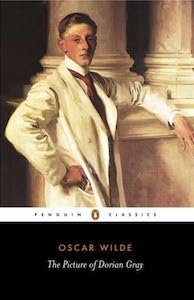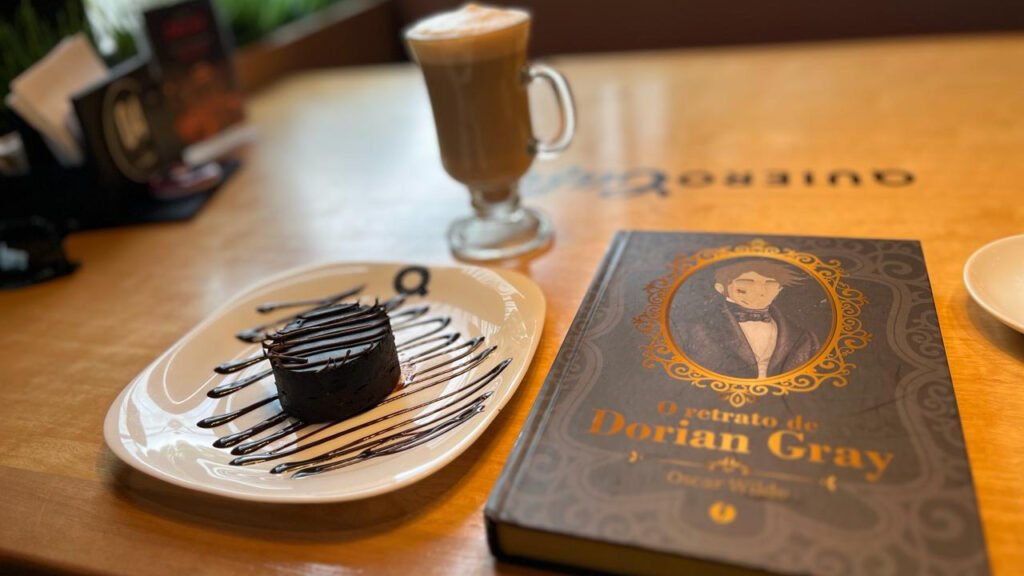Today, I’ll be reviewing The Picture of Dorian Gray by the masterful Oscar Wilde. Well, I was somewhat familiar with this story from my journalism college days. It was a work that many colleagues and even professors recommended because it’s a classic, right? It has a very good writing style, and it also brings a reflection on the aesthetics of art and some unattainable standards of beauty.
And this is a recurring theme in society, isn’t it? It was discussed at the time of the book’s publication in eighteen ninety (1890), it was discussed during my college days, and it is still discussed today, especially with the predominance of social media in people’s lives.
The review will be based on the extended edition, which is the most well-known. Later, I’ll delve into more details about the differences between editions. We used the publication by Excelsior Publisher, a hardcover book with a very enjoyable edition for reading. I have only praise for this edition.
- The Fascinating Narrative of Dorian Gray
- The Consequence of Unbridled Pursuit of Beauty
- Current Critiques and Relevance of The Picture of Dorian Gray
- Obsession with Beauty and Youth
- Taboos and Editorial Changes
- The Fascination with Henry Wotton: An Analysis of Characters
- The Abandonment of Youth
- Final Thoughts on Oscar Wilde's Writing
The Fascinating Narrative of Dorian Gray
Ready to learn more about this review of The Picture of Dorian Gray by Oscar Wilde? It’s quite interesting, isn’t it? This is the author’s only novel, a novel here in the sense of an extensive fiction book, not in the romantic sense.
Well, The Picture of Dorian Gray begins with a conversation between two noble friends in London during the nineteenth century. Lord Henry Wotton is visiting his friend Basil Hallward’s studio and is astonished by the beauty of a portrait his friend had painted. Basil shares this feeling and tells his friend that this painting is the most beautiful thing he has ever created. He is captivated by his own work.
Soon after, Dorian Gray arrives at the studio to finalize the portrait, and Lord Wotton is even more amazed by Gray’s beauty. In this context, as the conversation unfolds, Henry, a convinced hedonist, gives a speech to Dorian about the power of beauty and how much Dorian’s life would benefit from being beautiful and young.
The Consequence of Unbridled Pursuit of Beauty
But at the same time, fate would be cruel to him because time takes away the beauty and youth of the beautiful, leaving them with nothing. Initially, Dorian doesn’t pay much attention to Henry’s talk, but when he confronts his portrait, he becomes aware of his beauty as never before, and Henry’s strong words come to life in his consciousness.
Afraid of aging and losing his beauty, he wishes that the portrait would age in his place. By a twist of fate, his wish is granted, and the portrait begins to suffer from aging, as well as every time Dorian hurts someone.
The protagonist leads a hedonistic life, hurting many, ruining the lives of several, negatively influencing others, always seeking immediate pleasure and easy rewards, constantly spurred on by his hedonist friend Henry Wotton (who is often referred to as Harry in the work, so Henry and Harry are the same person).
Current Critiques and Relevance of The Picture of Dorian Gray

Dorian, then, leaves a trail of hurt people and becomes a bitter and cold man who commits atrocity after atrocity. When he realizes he is deteriorating as a person, his soul is already completely corrupted, despite his external beauty still existing.
So, here we have a very strong metaphor, right? If time did not take away his external beauty, it took away his inner beauty and genuine happiness. I want to highlight this in our review of The Picture of Dorian Gray. This symbolism in the work is very strong, even if we bring it to today with all this unrestrained pursuit of beauty. In other words, it is a criticism of the society of the time, but one that also applies to our current society.
Obsession with Beauty and Youth
Here I want to mention some points that permeate the work. The first is the obsession with youth and beauty. That is, Dorian Gray, the main character of the work, becomes obsessed with his beauty and youth, relentlessly seeking hedonistic pleasures and avoiding aging. This intense desire to preserve youth demonstrates some of the pressure that exists on people to meet ideal aesthetic standards. This applies to both the time of the book, in the nineteenth century, and today, with today’s society being even more influenced by social media.
We also have the duality between appearance and reality present in this work. Dorian Gray hides the moral decay that occurs in his real life, while his portrait shows the true condition of his soul. This is also seen a lot today, where people often share only the positive parts of their lives, creating a facade of perfection that can mask real problems and create additional pressure to maintain an idealized image.
The third critique here that is in the background of this book is the consequence of the unbridled pursuit of beauty standards. Just as Dorian Gray faces tragic consequences for his obsession with beauty, the unrestrained pursuit of aesthetic standards in our current world can lead to problems of distorted self-image.
Taboos and Editorial Changes
Here we have two more important points that deserve attention. The first is the criticism of art and aesthetics: Wilde questions a society that cannot appreciate art without imposing moral standards. The Picture of Dorian Gray is a work of art that reflects the true nature of the character, but the Victorian society of the nineteenth century, to which he belonged, cannot accept this genuine representation. The preface of this book is well-known for making this explicit criticism of that society.
The preface was also added due to the taboos of the time. The first version of this book was censored because it addressed the homoffective feelings of one of the characters, which was prohibited in England at the time. This version had 13 chapters and was forgotten for much of history until it was recovered recently.
This edition here has 20 chapters, meaning it was extended by Wilde, who modified the content of the book. Here, Basil is in love with Dorian’s portrait, not the character himself, so he ends up being in love with his work. I was not aware of the existence of two versions of this book; I only learned this while researching for this review.
The Fascination with Henry Wotton: An Analysis of Characters
Despite being named in honor of Dorian Gray, in my opinion, the most interesting character in the book is Henry, who is often referred to by the nickname Harry during the work, as I mentioned earlier. He is a character with incredible eloquence, and all his lines in the book are filled with provocative ideas, praising the pursuit of immediate pleasure at all costs.
One of Harry’s speeches catalyzes Dorian’s changes, and it’s quite an impactful speech in the second chapter of the book, which I will read to you. It’s on page 26, and I’ll highlight it below:
“And beauty is a form of genius– is higher, indeed, than genius, as it needs no explanation. It is of the great facts of the world, like sunlight, or spring-time, or the reflection in dark waters of that silver shell we call the moon. It cannot be questioned. It has its divine right of sovereignty. It makes princes of those who have it. You smile? Ah! when you have lost it you won’t smile. . . . People say sometimes that beauty is only superficial. That may be so, but at least it is not so superficial as thought is. To me, beauty is the wonder of wonders. It is only shallow people who do not judge by appearances. The true mystery of the world is the visible, not the invisible. . . .“
The Abandonment of Youth
Then, he continues: “When your youth goes, your beauty will go with it, and then you will suddenly discover that there are no triumphs left for you, or have to content yourself with those mean triumphs that the memory of your past will make more bitter than defeats. Every month as it wanes brings you nearer to something dreadful. Time is jealous of you, and wars against your lilies and your roses. You will become sallow, and hollow-cheeked, and dull-eyed. You will suffer horribly…. Ah! realize your youth while you have it”.
In other words, he ignites the spark that sets off Dorian’s transformation. By encouraging the relentless pursuit of pleasure, Harry enables the moral decay of our main character.
Throughout the book, Harry defends the greatest absurdities and senseless things, but he does it masterfully and has immense influence over Dorian. So, these lines from Henry are an extra asset and a separate critique of the society they lived in.
Final Thoughts on Oscar Wilde’s Writing
About the author’s writing, it is generally very good. The beginning of the book evolves in a very nice way, but it loses its way a bit in the middle, around chapters 12 and 13, making it a somewhat tedious read. Towards the end of the book, the pace picks up, reaching its climax, of course, in the last pages.
My rating was 4/5, but I consider that if I were not a dedicated reader, I might have dropped the book halfway through, which would have been a big mistake. I’m glad I stuck with the reading, and I recommend that you do the same!
Liked our review of The Picture of Dorian Gray? Also, check out other recent articles on the blog!”

